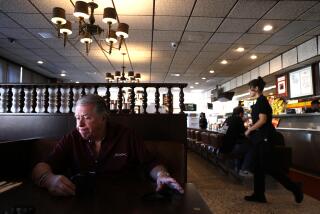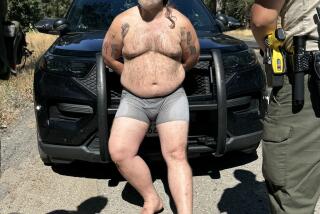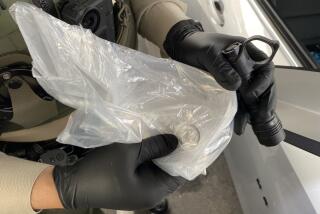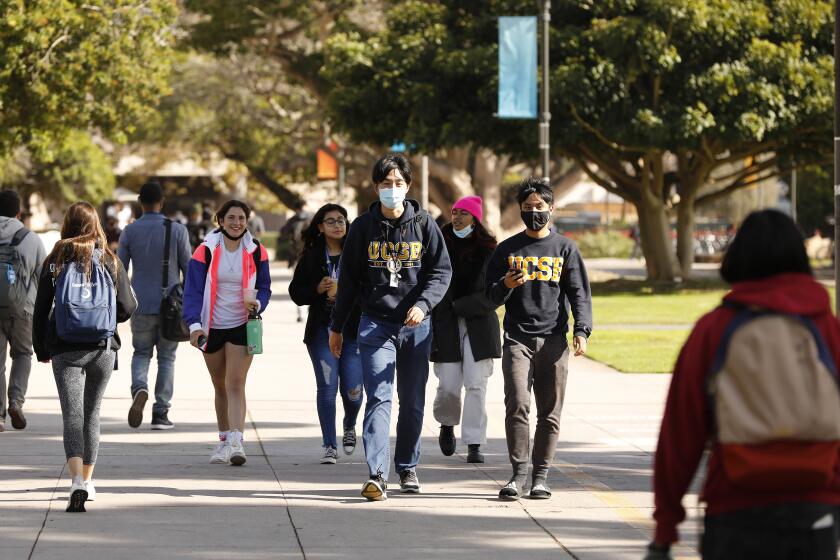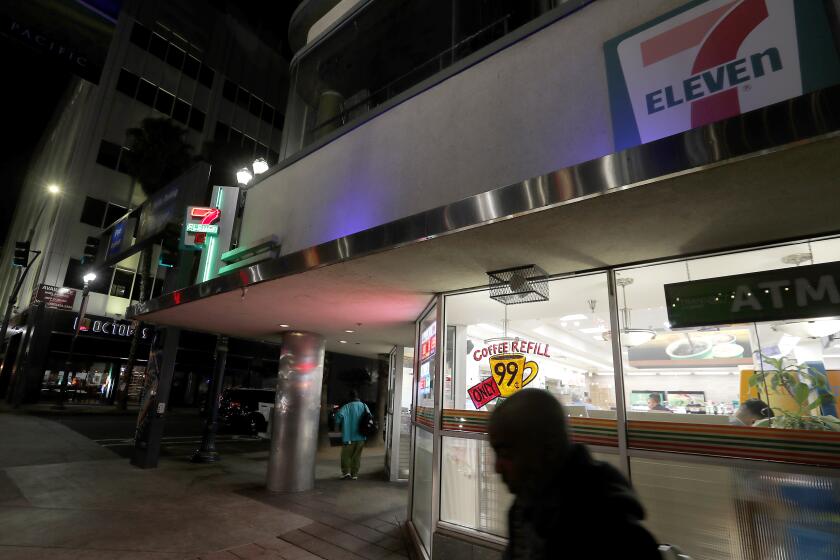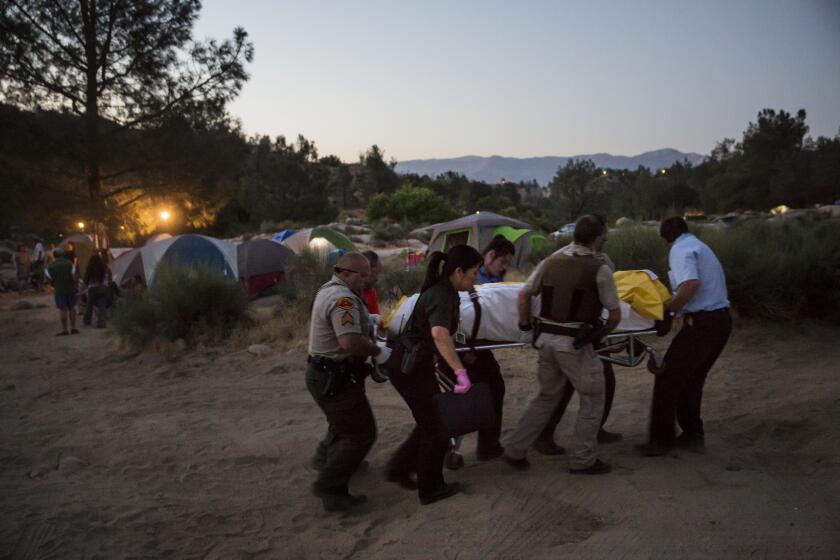NEWS ANALYSIS : Defense Gambit Helped Set Off Day of Rancor
O.J. Simpson’s lawyers came into court Monday with a novel, even audacious, legal gambit: a proposal to let the accused double murderer address the jury for one minute during opening statements.
The attorneys also asked the judge to allow Simpson to become, in effect, a human exhibit during his lead lawyer’s opening address to the jury, displaying his “scars, injuries and limitations.”
The first part of the request--for the one-minute address--is unlikely to be granted by Superior Court Judge Lance A. Ito, several legal experts said.
“I’d be shocked if Ito allowed him to talk in the way he asked,” said Los Angeles criminal defense lawyer Gerald Chaleff. “This is an attempt by the defendant to address the jury, present his personality, ingratiate himself in some way, without being subject to cross-examination. This is every defense lawyer’s dream.”
Los Angeles defense lawyer Gigi Gordon agreed: “There are no circumstances I know of that would allow this. To grant this request would be to grant O.J. Simpson a privilege no other criminal defendant I know of has gotten. I’m sure they would all love it.”
The defense stands a better chance of persuading the judge to allow Simpson to display his scars, experts said. Defense lawyers did not specify their reasons for the request. Presumably, they want to cast doubt on Simpson’s ability to have killed two younger people in good physical condition--his former wife, Nicole Brown Simpson, and her friend, Ronald Lyle Goldman--and to have vaulted a fence into his estate after the murders, as the prosecution contends he did.
On the day that opening statements were to have been presented, the requests helped touch off a day full of rancor and wrangling that led to postponement of the statements until today.
“This is an attempt to get the court’s leave to allow the defendant to testify without being cross-examined,” Deputy Dist. Atty. Marcia Clark angrily objected. “There is no such right, nowhere in the country, no authority cited in the motion. There is no law, no case, where such a thing has been allowed. If Mr. Simpson would like to testify, we would be delighted to cross-examine him.”
Defense lawyer Johnnie L. Cochran Jr. assumed the role of the underdog as he retorted: “They’re always trying to preclude us from doing something. Mr. Simpson has a right. They have no cases saying he can’t.”
Clark also scoffed at the idea that the proposed physical demonstration would prove anything about Simpson’s condition on the night of the murders, June 12.
Cochran, who proposes having Simpson show the jurors that he has limited ability to lift at least one of his arms, did not respond to that criticism.
The judge, however, testily asked Clark: “What is the difference between your showing victims’ bodies and Mr. Cochran showing the defendant’s body? Is there something fundamentally unfair about it?”
The judge’s ruling on both points is expected today.
It is hardly unheard of for defendants to address juries during opening statements.
For example, Angela Davis, the African American Marxist scholar, delivered an impassioned opening statement at the 1972 trial at which she was acquitted on charges that she had plotted a kidnap-murder in efforts to free “Soledad Brother” George Jackson from prison.
“Sometimes defendants want to represent themselves so that they will have an opportunity to make an opening statement and be active participants in the case and have the jury listen to them as they cross-examine witnesses, but not be cross-examined themselves,” said USC law professor Charles Weisselberg.
Davis was formally representing herself, as part of a legal team. But Simpson is not representing himself, making this a different situation.
“There is no precedent for this request,” said Los Angeles defense lawyer Marcia Morrisey.
“It’s so unconventional,” New York University law professor Stephen Gillers said. “I don’t think the judge would want to begin the trial with that kind of antic.”
On the other hand, Weisselberg said, “it would not be that unusual for the judge to allow Simpson to display a physical scar or a part of his body,” just as a defendant might be required by prosecutors to show a part of his body during their case.
Such a request by the defense team is reasonable, defense lawyer Morrisey said.
“It would be illustrating the opening statement--illustrative of what Mr. Cochran has to say about O.J.’s physical limitations,” Morrisey said. “Just as you can use a chart or a diagram or physical evidence in your opening statement to tell the jury what you intend to prove, you certainly can use physical evidence that is in the courtroom in the form of Mr. Simpson.”
On the other hand, Morrisey said there are risks for the defense as well: “If this were to be permitted, the prosecution may be able to make certain demands--like a physical examination of O.J. Simpson, if they suspect that he is in any way feigning any kind of physical problem or exaggerating those problems. That is the danger of such a demonstration from the defense perspective.”
But she said that if the defense is confident that physical limitations bear on the case and can be verified by a medical doctor, “it’s a very compelling piece of evidence.” The defense had some doctors on a supplemental witness list it submitted Monday, as well as Simpson’s personal fitness trainer.
Clearly, corroboration of physical limitations could be quite important because of the general perception of Simpson as a strong, swift man. “This is a hard argument for a guy to make who has been running through airports and jumping over cars in Hertz commercials,” Chaleff said.
Whatever Ito decides, he is likely to be on firm ground under California case law, which gives judges broad leeway on what they can allow during an opening statement, said Loyola University law professor Samuel Pillsbury.
More to Read
Sign up for Essential California
The most important California stories and recommendations in your inbox every morning.
You may occasionally receive promotional content from the Los Angeles Times.
